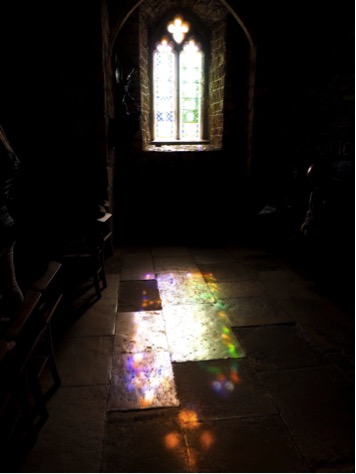My heart was recently overtaken by a tidal wave of emotions that sent my spirit tumbling into turbulence.
I saw persons dear to me–as they once were, as they now are, and as they yet may be. Thoughts of love and hope and memories of my failures and culpability flooded my mind. I lifted my hands toward heaven and opened my mouth to pray, but words failed me; there was only the pathos of a human heart.
And so I prayed. God hears our tears. His ear is tuned to the cries of the broken hearted, for his heart has been broken, too.
On the morning following this gloomy evening, a friend sent me the following quote from a sermon preached by Charles H. Spurgeon entitled “An Assuredly Good Thing” (MTP 15, Sermon No. 879). It illuminated my understanding like a light breaking through the dark night of the soul.
“Prayer is the modus operandi, it is the outward form of drawing near to God; but there is an inner spiritual approach which is scarcely to be described by language. Shall I tell you how I have sometimes drawn near to him? I have been worn and wearied with a heavy burden, and have resorted to prayer. I have tried to pour out my soul’s anguish in words, but there was not vent enough by way of speech, and therefore my soul has broken out into sighs, and sobs, and tears. Feeling that God was hearing my heart-talk, I have said to him, ‘Lord, behold my affliction; thou knowest all about it, deliver me. If I cannot exactly tell thee, there is no need of my words, for I read in a book: wilt thou be pleased to help thy poor servant! I scarce know what help it is I want, but thou dost know it. I cannot tell thee what I desire, but teach me to desire what thou wilt be sure to give. Conform my will to thine.’ Perhaps at such a time there may be a peculiar bitterness about your trouble, a secret with which no stranger may intermeddle, but you tell it all out to your God. With broken words, sighs, groans, and tears, you lay bare the inmost secret of your soul. Taking off the doors of your heart from their hinges, you bid the Lord come in, and walk through every chamber, and see the whole. I do not know how to tell you what drawing near to God is better than by this rambling talk. It is getting to feel that the Lord is close to you, and that you have no secret which you wish to keep back from him, but have unveiled your most private and sacred desires to him. The getting right up to Jesus, our Lord, the leaning of the head, when it aches with trouble, upon the heart that always beats with pity, the casting of all care upon him, believing that he cares for you, pities you, and sympathizes with you –this is drawing near unto God” (MTP 15:376-377).
Jesus has experienced all of our hopes and dreams and he has borne all of our failures, guilt, and punishment. Appropriately, he has been called the Wounded Healer. He was able to give me prompt peace and comfort in the very moment that my heart was overwhelmed. I encourage you, therefore, to draw near to God through Christ and be set free from the burden of your heart.
The timing of my friend’s correspondence to me belongs to “the hidden things,” but his familiarity with Spurgeon’s work is fairly well known. Christian T. George is the Curator of the Spurgeon Library at Midwestern Baptist Theological Seminary and he’s editing with Introduction and Notes the soon-to-be-released first of twelve volumes on “Lost Sermons of C.H. Spurgeon.”



